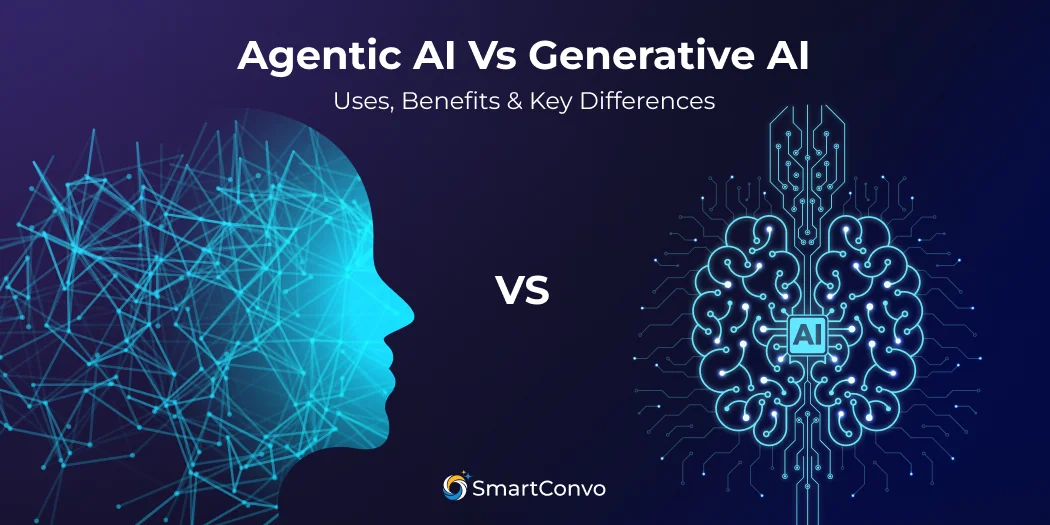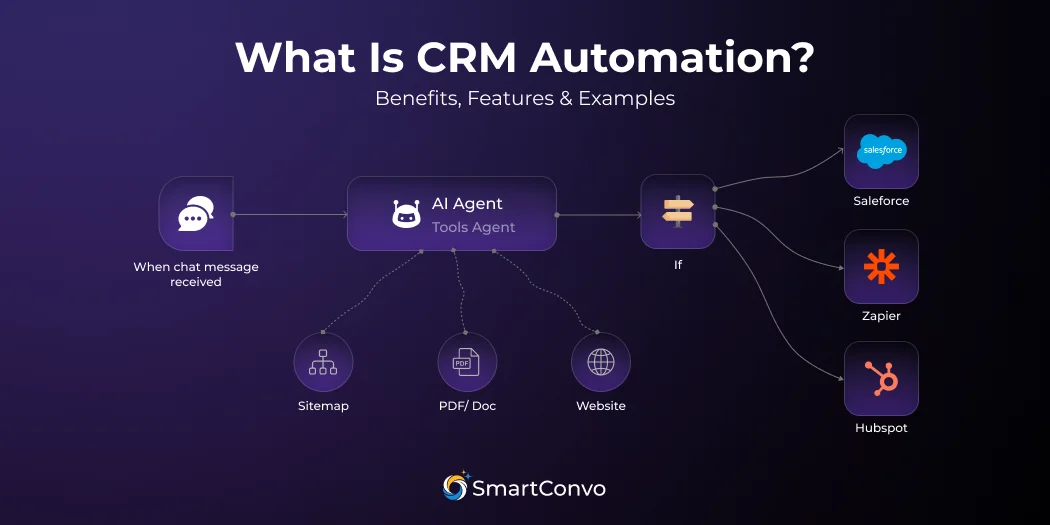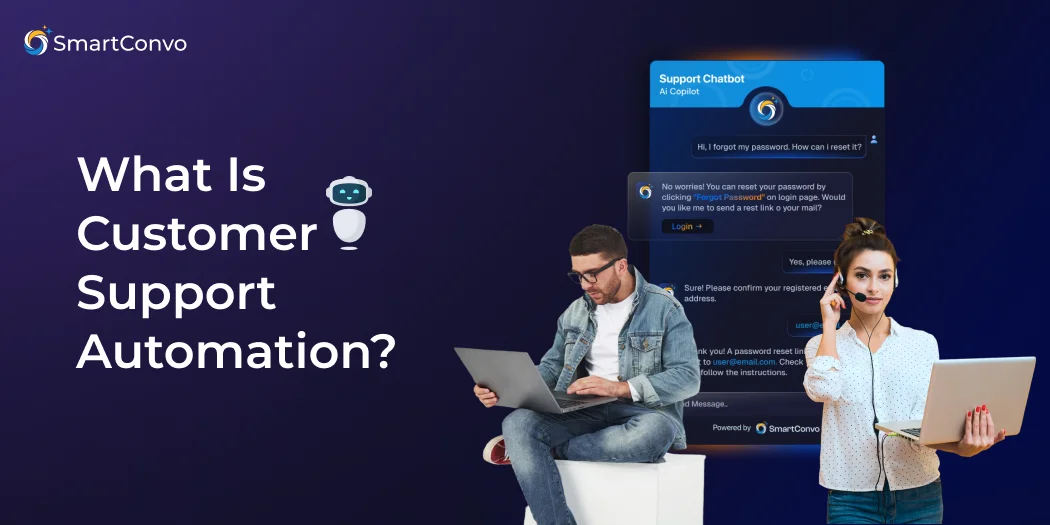Artificial intelligence is revolutionizing the way we work, interact, and live. At the forefront of this evolution lies a critical concept that drives much of AI’s potential—AI agents. From powering conversational AI to managing AI agents across complex enterprise systems, these intelligent entities are transforming industries and reshaping business solutions. But what is an AI agent exactly? And how does it function?
In this comprehensive guide, we’ll demystify AI agents, explore their types, examine how they work, and uncover their real-world applications. By the end, you’ll gain a clearer understanding of how these systems can revolutionize problem-solving and unlock new possibilities for businesses and developers alike.
If you’re curious about what are agents in artificial intelligence, this guide is for you. Whether you’re a tech enthusiast wondering about Agentic AI, an AI developer looking for insights on implementation, or a business leader keen to explore the benefits of AI for business, we have you covered.
What Is Ai Agents?
An AI agent is a system that perceives its environment, processes information, and takes actions to achieve specific goals or objectives. Think of it as an intelligent entity that interacts with its surroundings to deliver desired outcomes. This could range from a simple action like turning off lights when a room is empty to complex tasks like diagnosing diseases or trading stocks.
AI agents meaning lies in their ability to simulate decision-making processes and learn from data to improve over time. They can operate autonomously or in conjunction with human input, making them indispensable in both personal and enterprise applications.
To put it simply, an intelligent agent in AI bridges the gap between human intent and actionable results using artificial intelligence.
Types of AI Agents

AI agents aren’t one-size-fits-all. They are designed to address specific needs and vary in their complexity and capabilities. The following are the key types of AI agents and their functionalities:
1. Simple Reflex Agents
These agents respond directly to environmental stimuli using predefined rules and do not rely on learning or adapting over time. They are designed to react instantly to specific situations, making them best suited for simple tasks where immediate reactions are sufficient and no complex decision-making is required.
For example, thermostats use this type of AI to adjust room temperature by monitoring current conditions and comparing them to predefined thresholds.
2. Model-Based Reflex Agents
These agents maintain an internal model of the world, which enables them to analyze the current state of their environment and predict possible outcomes before taking any action. This forward-looking capability is essential for informed decision-making.
For instance, a self-driving car uses a model-based system to process and interpret current road conditions, such as detecting the positions of other vehicles, traffic signals, and pedestrians.
3. Goal-Oriented Agents
Goal-oriented agents rely on their internal model to accomplish specific objectives by analyzing their environment and making decisions that align with their desired outcomes. They evaluate various potential actions and select the one most likely to help them achieve their goal.
For instance, a Conversational AI for Sales agent is designed to optimize interactions with customers, guiding them through meaningful conversations that build trust and encourage engagement.
4. Utility-Based Agents
These agents not only aim to achieve a specific goal but also assess the desirability of outcomes through a utility function, which helps them make decisions based on the most favorable results.
For instance, a Generative AI Integration tool might generate multiple content outputs, each with slightly different styles, tones, or formats, and evaluate them against criteria such as user engagement, relevance, and readability.
5. Learning Agents
Learning agents are systems that adapt and improve over time by analyzing and learning from past experiences. This allows them to refine their behavior and enhance their decision-making processes to better meet user needs.
For example, an AI Copilot designed for software development learns from user inputs, such as code snippets, corrections, and preferences, to provide increasingly accurate and personalized coding assistance.
How Do AI Agents Work?
Understanding how AI agents operate can feel like uncovering the inner workings of a clock. At a fundamental level, AI agents work by completing four essential processes:
1. Perception
AI agents use sensors or data inputs to perceive and understand their environment. This can involve a variety of methods depending on the use case. For instance, an AI chatbot with a knowledge base collects and processes customer queries through text, enabling it to provide relevant responses.
In other cases, AI systems may analyze numerical data, identify patterns, or process visual inputs like images or videos to make sense of their surroundings.
2. Processing
The agent processes incoming data by leveraging algorithms, statistical models, or machine learning frameworks to analyze and interpret the information. This process enables the agent to identify patterns, make predictions, and generate insights based on the data it receives, ensuring accurate and efficient outcomes for various applications.
3. Decision-Making
Based on the processed information, the AI agent carefully evaluates the data to determine the most optimal action to take. This decision is guided by its predefined goals, programmed rules, or learned behaviors acquired through training and experience.
By analyzing patterns, weighing options, and considering potential outcomes, the AI ensures that its actions align with the objectives it is designed to achieve.
4. Action
Finally, the agent performs the action, which could involve sending a personalized message (like a Sales Assistant Chatbot engaging with a customer to answer queries or recommend products) or making adjustments to connected devices, such as changing the temperature in smart home systems to improve comfort and energy efficiency.
Real-world examples provide a clearer view of these processes in action. For instance, in Document AI for Knowledge Management, AI agents analyze vast amounts of unstructured data, extracting critical insights and patterns to improve decision-making across enterprise platforms.
Components of AI Agent Systems

Building an effective agent AI system requires combining multiple components. Each of these elements plays a distinct role in enabling the agent’s autonomy and intelligence.
1. Sensors
Sensors enable agents to perceive their environment by detecting and collecting real-time data about various conditions, such as temperature, movement, light, or proximity. This information allows agents to make informed decisions and respond effectively to changes in their surroundings.
2. Actuators
These allow the agent to interact with its surroundings or bring about changes in its environment, enabling it to respond to external stimuli and perform actions that influence the world around it.
3. Goals or Objectives
Any intelligent agent in AI functions with a defined objective or purpose, which serves as the foundation for its actions. These goals are essential as they guide the decision-making process, helping the agent determine the best course of action to achieve the desired outcomes.
4. Knowledge Base
The knowledge in AI helps agents make informed decisions by providing them with the necessary tools and information to analyze and respond effectively to various scenarios. This knowledge is typically a combination of predefined rules, extensive databases, predictive models, and learned experiences.
5. Communication System
Agents may also require communication tools to interact with external systems, humans, or other agents effectively. These tools enable seamless information exchange, coordination, and collaboration, which are essential for achieving complex tasks and ensuring smooth operation across various platforms or environments.
What are the benefits of AI agents?
1. Efficiency
By automating repetitive tasks, AI automation enhances operational efficiency, reduces human error, and frees up valuable time for employees to focus on more strategic, high-impact activities. It streamlines workflows, allowing businesses to achieve faster results and allocate resources more effectively.
2. Scalability
Agents play a crucial role in helping businesses scale their operations efficiently. By acting as intermediaries or representatives, they allow companies to reach new markets, manage customer interactions, and handle tasks without the need for significant investments in additional staff or infrastructure.
3. Personalization
AI agents deliver tailored experiences that enhance engagement by dynamically adapting to individual needs. For example, AI Copilot analyzes user behavior, preferences, and patterns to provide personalized recommendations. This allows it to continuously refine its suggestions, ensuring users receive the most relevant and effective guidance, whether they’re navigating complex tasks or exploring new opportunities.
4. 24/7 Availability
AI chatbots can operate 24/7 without breaks, making them ideal for businesses that need continuous support. Benefits of AI chatbots include delivering consistent, reliable service at any time, regardless of time zones or business hours. They ensure customers receive prompt responses to their inquiries, improving satisfaction and streamlining operations for businesses.
5. Cost Savings
Reduce operational costs and improve efficiency by automating routine processes. By streamlining repetitive tasks, your team can focus on higher-value activities, leading to better productivity and significant long-term savings
Real-World Applications of AI Agents

1. Healthcare
AI agents play a crucial role in healthcare by streamlining diagnostics, offering accurate treatment recommendations, and optimizing administrative workflows. These intelligent systems analyze medical data to assist in identifying conditions, suggest personalized treatment plans, and automate routine tasks such as scheduling and patient record management, allowing healthcare professionals to focus more on patient care.
2. Marketing
Conversational AI for Sales leverages advanced technology to deliver personalized marketing experiences. By using effective engagement strategies, it helps businesses connect with customers in real-time, understand their needs, and provide tailored solutions to drive sales and build stronger relationships.
3. Customer Service
Conversational AI tools like chatbots are designed to efficiently handle customer inquiries, providing quick and accurate responses 24/7. These tools not only improve customer satisfaction by reducing wait times but also help businesses save time and resources by automating repetitive tasks.
4. Manufacturing
Agents play a crucial role in improving production line efficiency by performing detailed quality checks, ensuring that each product meets the required standards before moving to the next stage. Their efforts help identify and address potential issues early, reducing waste and maintaining consistent product quality.
5. Education
AI tutors provide personalized learning experiences by adapting to each student’s unique needs and pace, thanks to their advanced capabilities in artificial intelligence and data analysis. These tools can identify areas where students struggle, offer tailored guidance, and create a more effective and engaging educational journey.
6. Finance
Banking applications now leverage Generative AI Integration to enhance security by analyzing transactions in real-time and identifying unusual patterns that may indicate fraudulent activity. This cutting-edge technology enables faster and more accurate detection, helping to protect both financial institutions and their customers from potential threats.
The Future of AI Agents
The future is bright for AI agents, with advancements in Agentic AI and Generative AI Integration set to significantly enhance their capabilities. These technologies are paving the way for smarter, more autonomous systems that can perform complex tasks with minimal human intervention.
From offering predictive insights to delivering hyper-personalized user experiences, agent AI is poised to transform a wide range of industries, including healthcare, finance, customer service, and more.
As these advancements continue, AI agents will not only improve operational efficiency but also create new opportunities for innovation and growth, redefining how businesses and individuals interact with technology.
AI agents will not just execute tasks—they’ll collaborate, innovate, and create value.
No Credit Card Required | 14 days Free Trial
Build Your Chatbot
Conclusion
AI agents are not just a tool—they’re a transformative competitive advantage in today’s fast-paced digital world. These intelligent systems are designed to perform specific tasks, learn from data, and adapt to user needs, making them invaluable across industries. By understanding their capabilities, types, and real-world applications, businesses can streamline operations, enhance customer experiences, and unlock new opportunities for growth and innovation.
Whether it’s automating repetitive tasks, improving customer interactions, or analyzing complex data, AI agents can drive efficiency and results. If you’re ready to harness their power, consider exploring solutions like Sales Chatbot to engage prospects, Helpdesk Knowledge Base to provide instant support, or AI Automation tools to optimize workflows. These tools can help you stay ahead of the competition and achieve your business goals with ease.
Frequently Asked Questions (FAQ)
AI agents are autonomous entities that use sensors and actuators to perceive, process, and interact with their environment for specific objectives.
Sectors like healthcare, customer service, finance, and manufacturing are leading with intelligent AI agents to drive efficiency.
Learning agents can adapt behaviors by continuously acquiring knowledge, unlike static agents such as reflex or utility-based ones.
Risks include bias in decision-making, data privacy concerns, and dependency on technology. Mitigating these risks requires robust safeguards.
No, AI agents are designed to assist and enhance human efforts, not replace them entirely.













